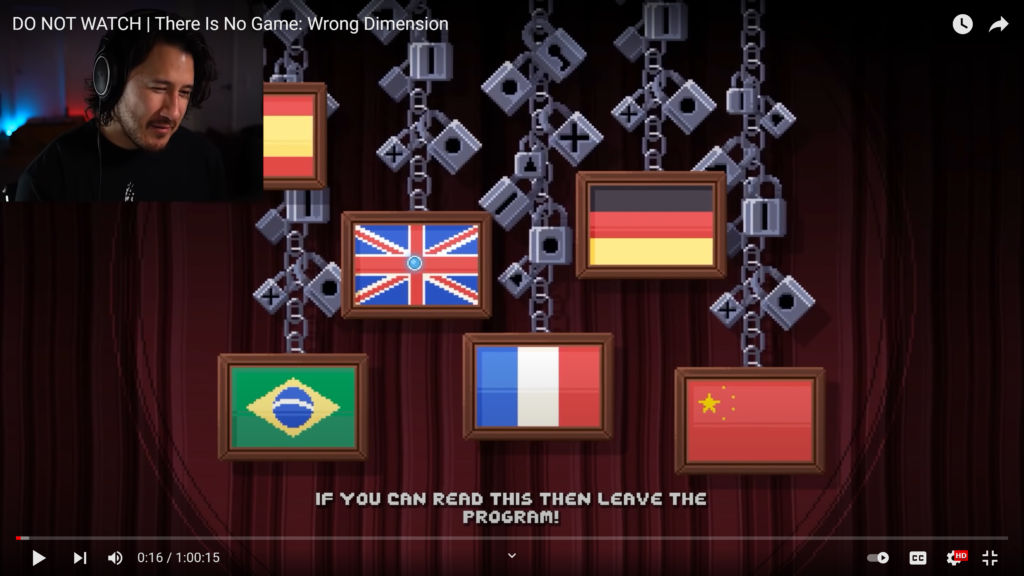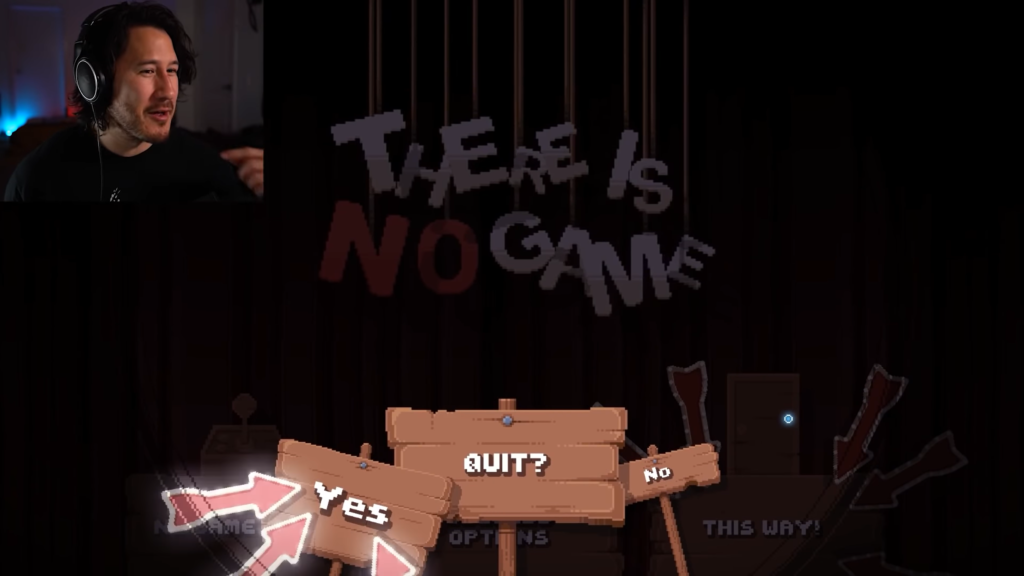There Is No Game brings up pretty interesting questions about the relationship between player and narrator/the relationship between player and game. Namely, how does being guided by a narrator invite, challenge, or play with a player’s interaction with a game. I will discuss my own exploration of this question by comparing the narrative experience of There Is No Game to Little Big Planet.
Before I even get into analyzing these narrators themselves, I’d like to take a moment to point out the obvious-but-nonetheless-warranted-to-mention importance of dialogue when it comes to narrators. Narrators have no control over a player’s access to the mechanics (outside of certain mechanics only being accessible after certain points in the narrative in some cases, which at its core is really more a temporal issue)–the only real interaction between the narrator and the player is through the narrator’s dialogue. In this sense, the narrator adds subjective value to the player’s experience of the game (which is no surprise, considering the subjectivity of narration).
So… this brings us back to the question of how a narrator’s relationship with a player–manifested through dialogue–affects a player’s experience in interacting with a game. Let’s talk about the introduction to There Is No Game.



In all of these examples, and in many other moments of the game, Game prompts the player to quit, to leave, to for the love of god stop playing this non-game. Of course, it is obvious that this non-game is a game and that there is more to discover. The narrator’s defensive dialogue challenges the player to explore the world of the game. What else could there be? What are you missing? This dialogue that seeks for the game to be left alone and not played reflexively points towards the fact that there is more to be discovered, and in this way plays on a player’s curiosity to prompt them to continue the game.
On the complete opposite end of the spectrum is the narrator of Little Big Planet.
Throughout the game, the narrator of Little Big Planet takes on a role that is more of an ultimate guide and mentor to the player. As can be seen in this intro video, the narrator welcomingly explains the mechanics of the game to the player, and maintains an encouraging feeling of being present while the player explores each mechanic, as he is always there at the next step to explain a new mechanic. He also has a voice that could be argued as comforting or grandfatherly, further establishing his presence as a positive and encouraging narrator. By having dialogue that is explanatory, encouraging, and at some points cheeky, this narrator encourages the player to explore the game in a very positive and welcoming manner.
Something that I have thought about with There Is No Game is the perception of control between the player and the narrator. As a player goes through the game, the narrator seems powerless, as despite any pleas for the game not to be played, the player ultimately plays the game. However, upon second look, it is really the narrator–the Game–that holds all the power; the player playing the game despite any pleas is specifically how the game was designed to be played. At the end of the day, it is the player who has fallen into the game’s trap, not the other way around. The narrator in There Is No Game, in Little Big Planet, and in any game, is an access point to the game itself that–through various styles, dialogues, and constructed relationships–prompts the player through the program of the game. This is a function of what it means to be a narrator. The compelling part of this is the how.

